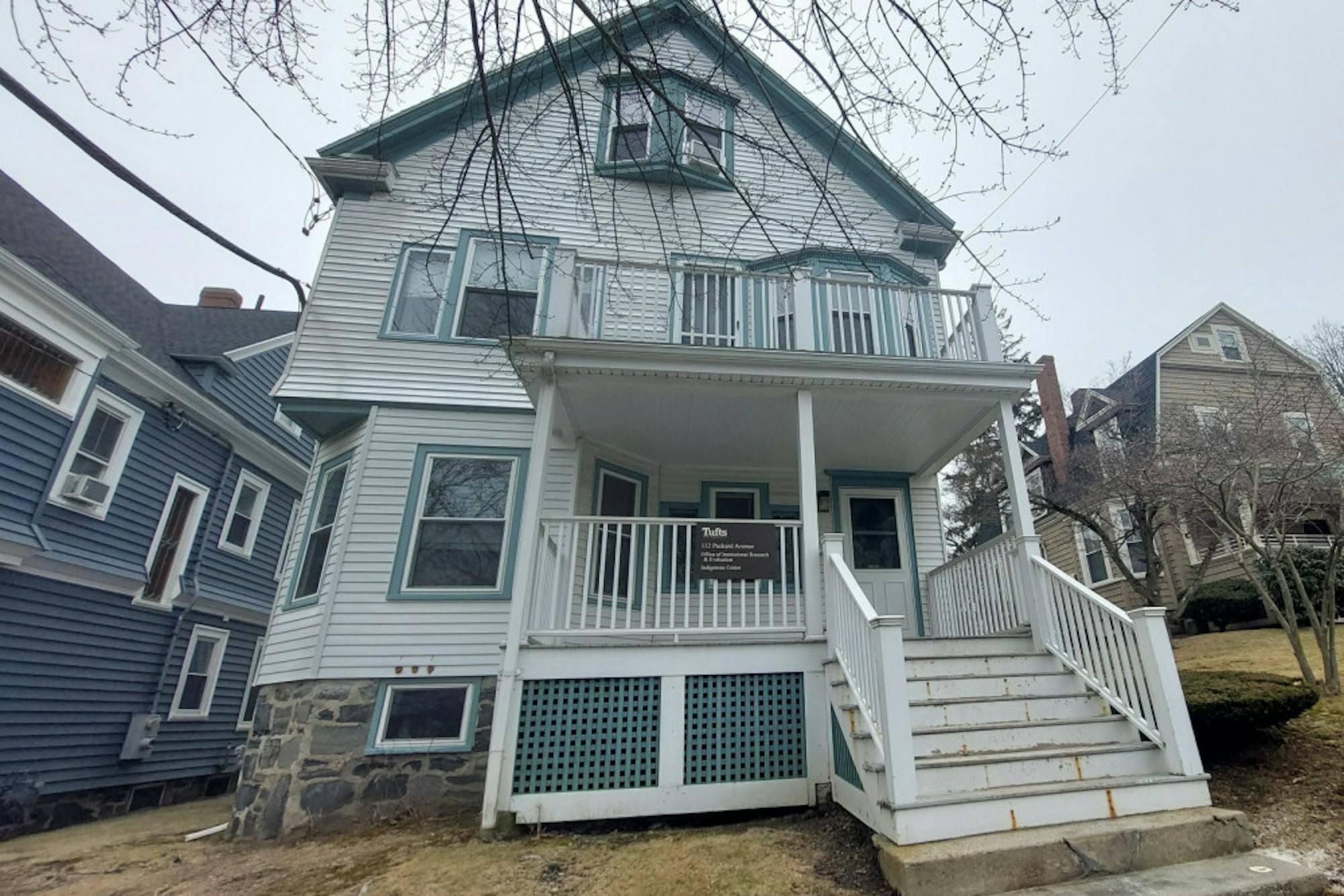The Division of Student Diversity and Inclusion announced a new identity center for Indigenous students at Tufts last fall, following recommendations from a workstream report the university published in early 2021. More recently, the university hired Vernon Miller to direct the center.
“The Indigenous Center, under the leadership of Vernon Miller, will work to support students who identify as Indigenous through programming, and collaboration with others in the Tufts community along with external Indigenous communities,” Vernon Miller and Ellisse LaMotte, associate dean of student diversity and inclusion, wrote in a joint statement to the Daily. Miller began his role as the center’s director in March.
The new center will work to amplify Indigenous students’ voices at Tufts while providing social, academic and cultural programming as well. The center joins the DSDI’s six other resource and identity centers as the university’s latest effort to promote diversity and inclusion at Tufts and create more resources for students.
“The Indigenous Center fits into the broader effort and connects to the Compositional Diversity Anti-Racism Workstream efforts and the Tufts as an Anti-Racist Institution initiative directly, in that the Director will work with Admissions to participate in efforts to increase the indigenous student population and will simultaneously develop programming to support the students who enroll into Tufts,” LaMotte and Miller wrote.
Alongside the DSDI, the Indigenous Students’ Organization at Tufts, or ISOT, has played an important role in the new center’s launch. Cyrus Kirby, a co-founder of ISOT, celebrates the expansion of support for Indigenous students on campus.
“Broadly speaking, our goals are to raise the well-being of Indigenous peoples on campus, which can take many forms,” Kirby, a senior, wrote in a statement to the Daily. “The IC [and] its director Vernon Miller is a huge success for us because it gives us a space to gather, relax, and take some of the load off planning.”
Miller and LaMotte emphasized the collaboration and engagement between the new center and ISOT to expand on their programming and goals. Last spring, ISOT met with Nandi Bynoe, the former assistant dean of diversity and inclusion, to consult on what the organization wanted to see in a new center. Students of ISOT also interviewed potential candidates for the center’s director in January of this year.
“The Indigenous Center has and will continue to be the hub for ISOT, and other allies of the Indigenous community at Tufts,” Miller and LaMotte wrote.
The Indigenous Students' Organization at Tufts and the Indigenous Center will also interact in a more operational capacity and help to strengthen the connection between the work being done by the center and students. The Indigenous center plans to support ISOT programming on Indigenous Peoples’ Day and to aid the student organization with retention and recruitment.
“Tufts, and other predominantly White institutions should create community cultures that emphasize a sense of belonging and provide resources supporting students who are underrepresented on the campus, helping to foster this belonging,” LaMotte and Miller wrote. “Tufts works to accomplish this through the diversity centers, DSDI, the Chief Diversity Office efforts as well as other efforts throughout the institution.”
LaMotte and Miller outlined how the project was approved and how funding for the new center was allocated.
“There was an interest put forth by the ISOT student organization to open an Indigenous Center and with the approval of the Deans, center funding and a location for the Indigenous Center were allocated. Soon thereafter, a search for the director took place and Vernon Miller was hired in February and started as Director in March 2022,” they wrote.
Formed on campus in 2019, ISOT has high hopes for how the new Indigenous Center can assist and support students on campus. The DSDI team is currently working on developing programming for the center in preparation for the upcoming academic year.
“Vernon has some great ideas concerning the entire pre-Tufts to post-Tufts process, starting with recruitment and ending with successful placement in a job or grad school,” Kirby wrote. “Part of that involves getting more targeted mental health resources, helping to find internships, and giving ways and a space for students to express their culture on campus.”






